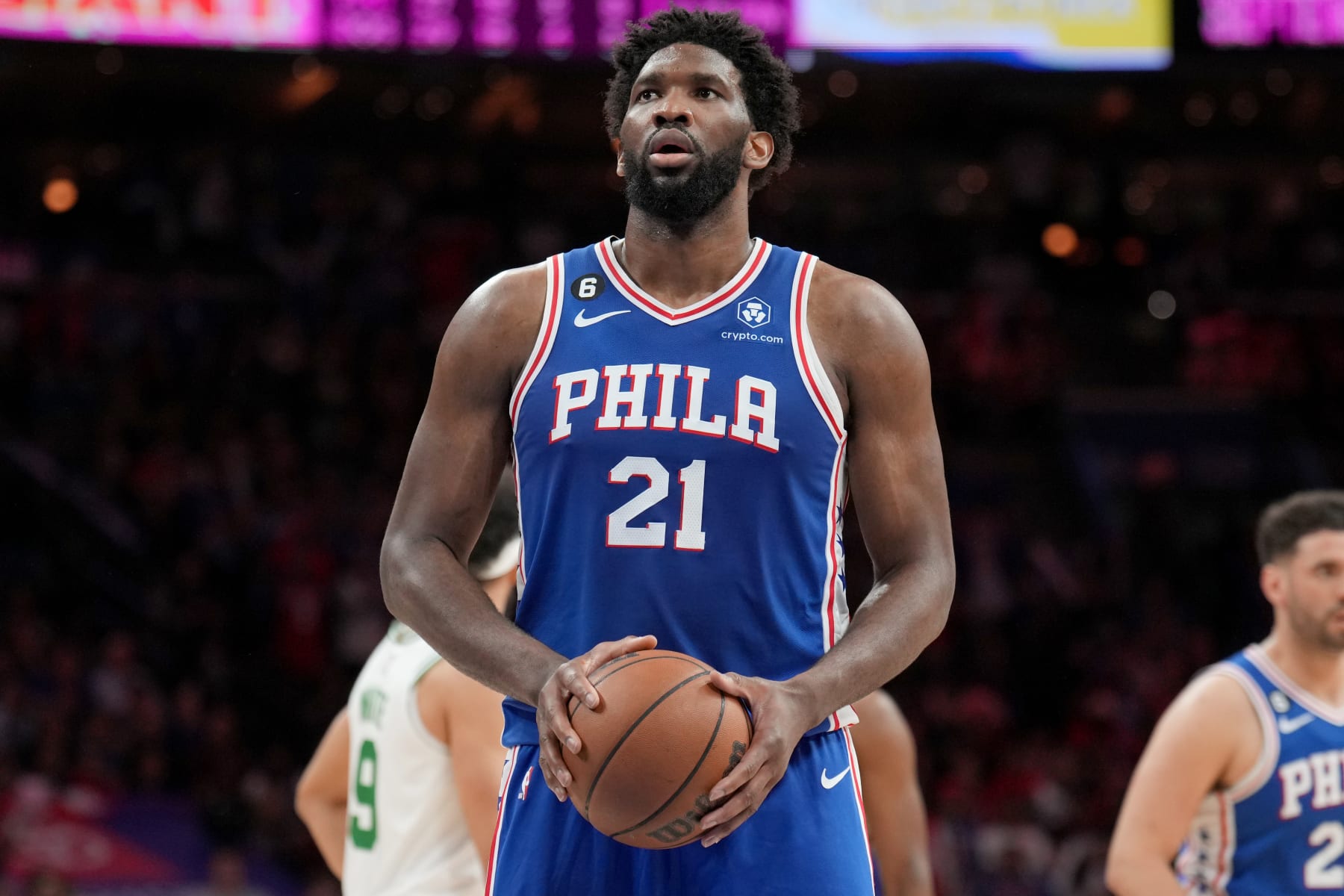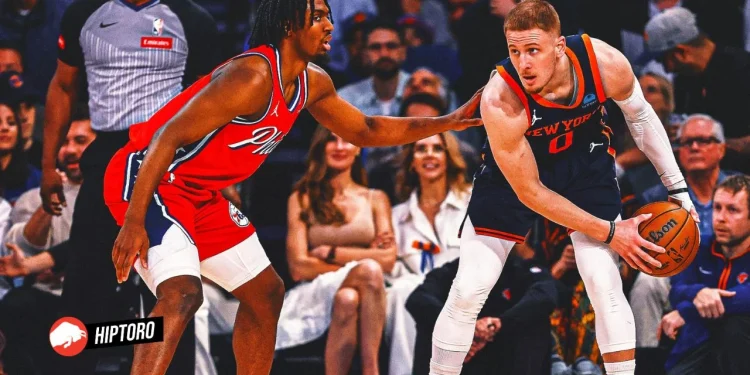The intensity of the NBA playoffs escalated during the recent showdown between the New York Knicks and the Philadelphia 76ers, particularly around a contentious play involving 76ers’ star Joel Embiid. In a critical moment of Game 3, which concluded with a 125-114 victory for the 76ers, Embiid was involved in an incident that the Knicks have openly criticized as “dirty.”
The incident unfolded with just over four minutes remaining in the first quarter when Embiid, in a disputed attempt to draw an offensive foul, made contact with Knicks’ center Mitchell Robinson’s right leg. This contact, occurring in a moment already charged with playoff fervor, did not sit well with the Knicks.
Robinson, who has been nursing a delicate left ankle, was notably affected by the incident, exacerbating his condition and leading to his absence after halftime due to a sprain.

Knicks guard Donte DiVincenzo didn’t mince words, labeling the play as “dirty” and underscoring the seriousness of the action in post-game comments. His teammate, forward Josh Hart, added to the chorus of disapproval, pointing out the potential for such incidents to result in significant injuries.
“It’s something that can put a guy out for a significant amount of time,” Hart emphasized, drawing a line between acceptable physical play and reckless conduct.
Officials Weigh In on the Flagrant Foul
The play drew immediate attention from game officials who took time to review the incident to determine the severity of the foul. The decision came down as a Flagrant 1—indicative of an unnecessary but not excessively violent act.
Crew chief Zach Zarba shed light on the deliberation process, noting that the decision was unanimous both on the floor and with the replay center officials in Secaucus, confirming that the foul, while unnecessary, did not escalate to the level of a Flagrant 2. Consequently, Embiid was allowed to continue playing in the game.
Embiid, for his part, offered an explanation that framed the incident within the context of self-preservation on the court, relating it to a previous personal experience of being injured. “I didn’t mean to hurt anybody. I just… in those situations, I gotta protect myself,” Embiid stated, acknowledging the high stakes and the inherently physical nature of playoff basketball.
The @NBA will not suspend @JoelEmbiid for NY vs Philadelphia Game 4. This ruling makes one question why Draymond Green was suspended in the 2016 Finals.
— Freedom or Nothing (@Every1HasAGift) April 28, 2024
Joel Embiid’s Dominance and New York Knicks’ Dilemma
Despite the controversy, Embiid’s performance in Game 3 was nothing short of stellar. Scoring a playoff career-high of 50 points, he was a dominant force on the court, continually challenging the Knicks’ defensive strategies. The ongoing concern for the Knicks, now trailing in the series, hinges significantly on Robinson’s recovery and readiness to face the formidable challenge posed by Embiid’s commanding presence.
As both teams gear up for the next games in the series, the Knicks face the dual challenge of managing their lineup in light of injuries and formulating a strategy to counteract Embiid’s influence. The intensity of the series promises to mount, with physical play potentially setting the tone for future encounters.
This high-stakes atmosphere is emblematic of playoff basketball, where tensions run high and every play can tip the scales of victory. As the Knicks and 76ers continue to battle it out on the court, fans and analysts alike will be watching closely, anticipating the strategic adjustments and responses that will unfold as the series progresses.

Source: NBA Analysis









